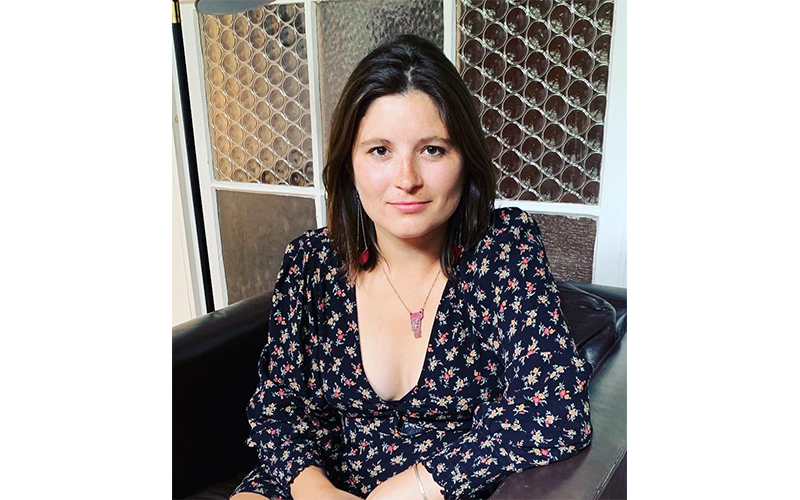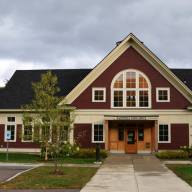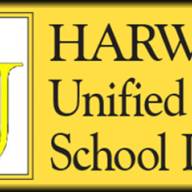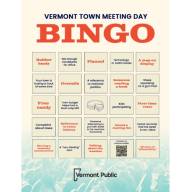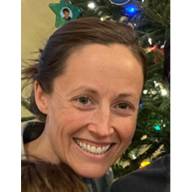Waitsfield author Erika Nichols-Frazer’s latest book is “Staring Too Closely,” a compelling group of poems written between 2006-2023.
Full disclosure, Nichols-Frazer is a former staff writer for The Valley Reporter and is also the author of a memoire, “Feed Me,” that was published in December 2022.
“Staring Too Closely”comes out this week. It’s a wide-ranging and eclectic selection of poems that the author said are personal and emotional and might be themed around healing. In her memoir and in her poetry (and in real life) Nichols-Frazer talks openly about struggling with mental illness growing up and into adulthood until receiving a diagnosis and finding treatment.
The book opens with a poem “Warming Up” about sitting by the woodstove before a fire that her now husband has built for her. She’s mourning an ectopic pregnancy and almost losing her life (and losing a fallopian tube) and she’s trying to come to grips with feeling that her body betrayed her or that she was somehow at fault for what happened. Nichols-Frazer said she’d written multiple versions of that poem that focused only on the woodstove and warming without writing and only after input from a beloved writers’ group and therapists, was able to set the stage for “Warming Up” by adding the context (the ectopic pregnancy and emergency surgery) for why she was sitting by the woodstove. Adding that context to the poem was critical to her ability to heal.
Another poem, “Quarantined,” deals with the early days of the COVID-19 pandemic, then the grueling never-ending days of the pandemic and the waiting and waiting and waiting. Here’s an excerpt from the middle and end of that poem that captures the essence of a seemingly endless pandemic.
We count bodies on our fingers,
toes, then lose track can’t keep up
100,000, 200,000, impossible numbers.
Still, the death toll rises.
Where will they be buried? Who will
dig into the earth?
We’ve been waiting for this, and yet—
The greatest unknown.
No more hugs, no more birthday parties.
I turn 32 without fanfare, then 33, another number to add.
No weddings or first dates, love postponed.
What does it mean to touch, now?
Time moves off-pace,
Fast/slow, nothing to punctuate it,
To say this is where we are.
“Writing and reading poetry provided a haven for me as well as a means of self-expression and discovery. While I write in all genres, poetry is a way for me to express my emotions in their rawest form, to draw upon the lyricism and imagery that speak to me and to play with language in a less restricted way. The form can also capture unfiltered emotions in a way that can sometimes feel less accessible in prose, I think,” Nichols-Frazer said via email.
“There's more room for experimentation. I love the intimacy of a poem and the way it invites its reader into the poet's experience. I try in my poetry to shine a light on things that don't get talked about enough or enough attention, be it the deeply personal or the global. There are poems about school shootings and space exploration in here, as well as poems about my personal struggles and joys,” she continued.
There’s vulnerability in the poems in this collection, she is vulnerable, her mother is vulnerable, as is her sleeping lover and as are children killed in a school shooting in Peshawar, Pakistan. There’s anger and insight and joy and love as well. Consider this excerpt from a poem entitled “Left Behind,” a poem about driving along a dirt road where books are scattered along singularly and in groups for at least a mile.
“Prose and plot are buried by
cigarette butts and fast-food wrappers
thrown from the windows of pick-up trucks
that didn't slow down.
I do not slow down.”
And later in the poem, after musing about how and when these books are unrecognizable, she asks when things stop being things, seque-waying to road kill that rots in the sun before shifting gears entirely and recalling an ex-boyfriend.
“These books scattered down Big Hollow Road, forgotten in dust,
make me think of my ex-boyfriend and the time he ripped
Contemporary American Poetry out of my hands
when my attention was lost to Sylvia Plath's “Lady Lazarus.”
The book flapped like a luffing sail
and hit the uncarpeted floor of his attic bedroom,
pages bent and torn, askew
words scattered over uneven floor planks,
the thud of it echoing.
I realized then I did not love him.”
“Staring Too Closely” will launch September 30 at 4 p.m. at Firefolk Arts on Main Street in Waitsfield Village.


